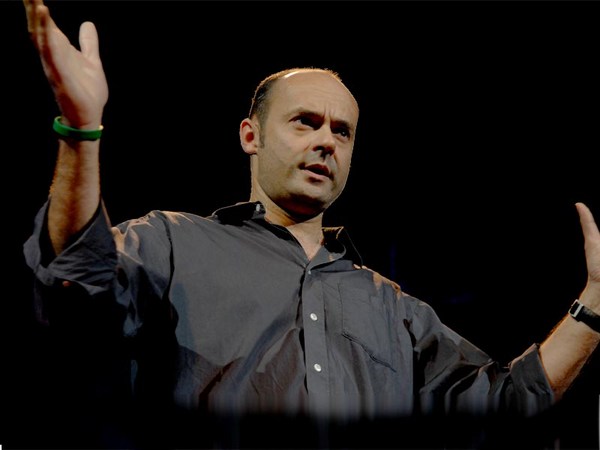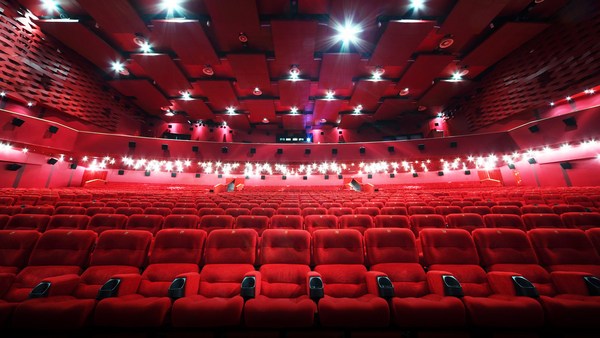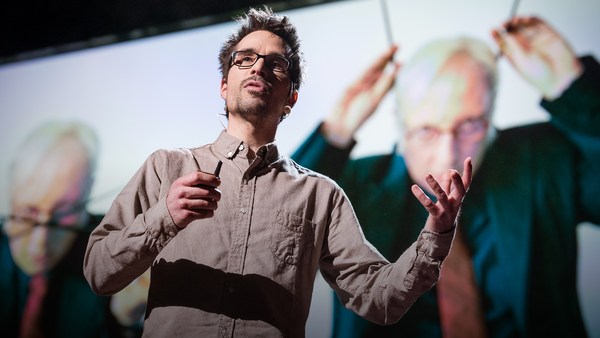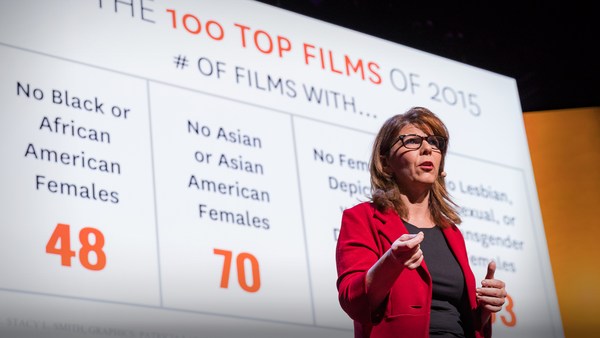This was my high school classroom. My favorite thing to do in high school was to draw the curtains after school and play movies for my classmates. That was in the early 2000. You would frequently come across stalls or stores selling pirated DVDs on the streets and alleys of Shanghai. For five to eight yuan, you could easily buy one. And that was my earliest introduction to movies. These five films were my top five out of my high school DVD collection. The pirated DVD seller usually divided the DVDs with a wooden grid. And films like mine usually fell under the seller’s category of “Good Hollywood Movies”. Watching movies then was, of course, the most efficient form of entertainment in my busy school life. Because in 90 to 120 minutes, one could meet different people, go to places one normally couldn’t, or even nonexistent ones, and imperceptibly understand other, different cultures, all while learning foreign languages. Back then, movies were my bridge to the outside world. Movies showed me the outside world. Time passed, and in college, I naturally joined The Film Society, continuing to play movies for different kinds of people. Since Hollywood movies got me into this, I thought at the time that I could translate the subtitles, at least. So I joined the English department and became an English student. But over the course of my four years at college, I suddenly realized that my taste in movies had changed. In the categorization of the seller of pirated DVDs, there usually was a “Chinese Movies” section next to the Hollywood one. I wasn’t interested in it during high school. But during my four years of college, I found myself gradually playing the following movies for my classmates: <i>The Soong Sisters, </i> <i>To Live, Farewell my Concubine,</i> <i>In the Heat of the Sun, </i>and <i>Suzhou River</i>. We even gathered classmates to watch <i>Lust, Caution,</i> and Bodyguards and Assassins at the movie theater. When I was looking for and watching these Chinese movies, I noticed that I was unconsciously creating another coordinate system for history. And watching the movies was exactly that - mapping history on this system. I realized that I desperately hoped to see reality, history, and society as they related to me in the movies. Through the movies, the historical events from textbooks come to life through every character. Their life stories are shared and become more vivid as a result. I watched all the elements related to me on the movie screen with gusto. There’s a film term called “Mise-en-scène” which refers to everything within the screen. It might include the composition, cinematography, depth of field levels, foreground, background, light and shadow, or the tones. If the movie screen represents the director’s eyes, then everything within the screen is what the director wants the viewer to see. So what’s mise-en-scène? It’s capturing society and reality or recreating a certain historical situation in accordance to the director’s imagination and vision. And as a viewer, I am also in pursuit of and identifying history and society that is related to me while watching movies. I see my own history and society through movies. This is the IFC Cinemas Independent Film Center in New York. It was the first movie theater I stepped into while doing my grad studies in NY. The first movie I watched there was <i>Last Train Home</i>, which was a story about a working-class household from the Huilong village of the Guang’an District in Sichuan province and their children, who were left behind. The parents headed south for work, and their daughter Zhang Qin, who was unwilling to stay in the village to continue her studies, wanted to work in Dongguan as well. Despite their love-hate relationship, the three always came back together during the annual, biggest migration of Chinese New Year. The most shocking scene of the movie for me was the opening ceremony of the Beijing Olympics on August 8, 2008. Qin Zhang, working down in the south, watched the Olympics from the back kitchen of a bar in Dongguan. The Beijing Olympics ceremony, the Beijing Summer Olympics Ceremony. And I remembered what I had been doing at that time of universal celebration. I’d been preparing for the TOEFL I was to take the next day at a hotel in Hangzhou. Qin Zhang and I had experienced the same exact moment, but what I saw there was the girl who was a long distance away from me and what she was doing. From then on, I realized that I’d uncovered another category: documentaries. If I can see my own history and society in movies, then my view of the situation is infinitely amplified through documentaries.` This is the Lincoln Center in New York. On the movie screen of a foreign country, I saw the scenery of Shanghai once again. Coincidentally, it was also a documentary - one called <i>I Wish I Knew</i>. Through the camerawork of the director Zhangke Jia, I encountered the Luwan district, the mouth of the Wusong, the shores of Pujiang, and the old workshop of a textile factory in the Yangpu District. The movie title was in reference to the English song Yuansun Zhang sang: “I Wish I Knew.” [Background music plays] In the movie, the interviewees detailed the legend of Shanghai in ROC era: The bloody revolution, Shanghai’s liberation, the reform and opening, company restructuring, other historical events. I hadn’t experienced it myself, but through this movie, I found that the history was buried at the ends of streets I passed by daily like a parallel universe. The phrase I wish I knew is actually a virtual voice. It’s the director pointing out the emotions of a Shanghainese viewer like me. I have such an attachment to that city, so why do I share so few of its memories? “I wish I knew.” If only I had known earlier. Interestingly, when I watched these documentaries in New York, those around me were all foreigners. And I found that the connection between me and everything in the movie became closer. In the light and shade, regardless of if it is the Huilong village of the Guang’an district in Sichuan the city of Dongguan, an old town of Shanghai, or a new city on the outskirts of town, whenever I see them, I always feel a voice inside my mind stirring, wanting to tell everyone loudly that “Hey, I know this place. I come from there. “All my connections to it are way deeper than all of you here.” The reality is that I’m not from the Huilong village of Guang’an, Sichuan nor have I ever gone to Dongguan. In my twenty years of living and growing up in Shanghai, whether it was the demolition of the old or the rise of new suburbs, none of it really incited a strong emotional response from me. But there, when everything on the screen came into my sight, whether it was Qin Zhang, Yuansun Zhang, Dongguan, Sichuan, or Shanghai, I felt like they were directly summoning me. And the place where this kind of magical experience is made possible is called the movie theater. In a theater, movies have their own lives and desire to interact with viewers. With strangers surrounding you, you’ll appreciate the connection between yourself and the movie on the screen more deeply. In the theater, the movie actively invites viewers to consider their location. As the curator of the Asian American Film International Festival when I started working in New York, I acquired and played movies. During the festival, we played the posthumous work, <i>Song of the Phoenix,</i> of one of the leading “Fourth Generation” directors, Tianming Wu. In the early nineties, director Tianming Wu went through a rather dejected period in the U.S. When the screening of <i>Song of the Phoenix</i> ended, a viewer walked up and thanked us for playing that movie. He said he’d met Director Wu during that time. We also organized a Chinatown Image Exhibition in New York and showed the work of Chinese-American image producer Tom Tan. His sister said Tom loved movies as a kid, but due to their poor background, he wasn’t allowed to study film and went for medicine instead. But all the same, he loved to take pictures with 8mm film. So in his work, one can see many images from his memories, including the balcony a poor family once lived on. When he was in school, one of the models he used was a little boy who sometimes smiled slightly and at other times had a confused expression. In the theater, movies gather people from all around. Every viewer comes with their own memories and concerns. But because of the communally shared 90 to 120 minutes, we develop more new memories and concerns at the movie’s end. The first movie promotion I participated in after returning to Shanghai was a documentary called <i>Please Remember Me</i>. The director Qing Zhao filmed his aunt and uncle, an old Shanghainese couple leading an ordinary but not serene lifestyle. Mr. Shufeng took care of his wife Ms. Weifang, an Alzhemizer’s patient, by himself. When I first saw this documentary, I truly wanted to participate in its creation because when I was your age, my grandpa was diagnosed with the same illness. Back then, I didn’t know how to communicate with an elder afflicted with such an illness. So in retrospect, this became my greatest regret. That’s why I wanted to do something for such an elder and household when I came across this documentary. This is from the Shanghai Cinema in 2017. We held the premiere of this film. In such a hall with nearly a thousand attendees, there were directors and even geriatric psychiatrists. Mr. Shufeng and Ms. Weifang attended as well. Of course, Ms. Weifang didn’t have the slightest idea about what she had been watching, and Mr. Shufeng asked everyone present to help them too. In the next year, we took the film to hospitals, medical schools, communities, streets, and schools of all sizes, screening it over 100 times. The film showed the patient’s family that he wasn’t alone and gave him the opportunity to learn what kind of care was the most scientific and effective. I took the film to medical schools and pharmaceutical companies and made the students, teachers, and practitioners there better understand the value of their work. And because nursing students also watched this film, they learned about the future subjects of their care, what they were like in reality, the past, and the present. I took the film to neighborhood committees and communities. That way, the committees might better reorganize the different kinds of social resources from corporations, the public welfare sector, the media, hospitals, and individual families. As for senior nursing homes or social workers, they also spent more time considering what they should do to provide and coordinate improved services for the elderly with dementia and their family. Of course, the students at the various schools also began to consider what they could do at their age due to this movie. When more and more people see this movie jointly, and when more and more people sympathize with it out of their own perspectives and experiences, you’ll realize that the widespread concern will unite and could possibly create great social change. And what did the movie give Mr. Shufeng? Ms. Weifeng used to be a teacher, and after the movie was televised, many of her past students went to him, telling him about her behavior as a teacher and little stories about her at school. So due to the movie, Mr. Shufeng found out that the day he fell sick, Ms. Weifeng was at home alone looking for him everywhere. As a result, Mr. Shufeng gained another very precious memory. That is the charm of the movie on and off the screen. It makes you consider your relationship with the worlds of others. Because we watch it together, we share more respect and concern and create new memories differently. And through that common concern, we can bring about a common course of action. Thank you.





